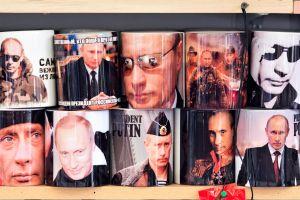Russia to Debate Crypto Laws ‘Next Month’, Putin Wants Strict Rules
Russia’s parliament, the State Duma, is set to hold a long-awaited second hearing for its package of cryptocurrency-specific laws next month.

Three bills passed the Duma with an overwhelming majority vote back in May this year, but politicians decided not to rush into a second hearing – choosing instead to modify the bills after consultations with the country’s central bank and financial regulators.
However, the head of the central bank’s legal department, Alexey Guznov, spoke at a banking forum, where he confirmed the bills would likely be read in “early October.”
News agency Pravda quoted Guznov as saying, “The work [on the bills] is ongoing. We hope to have a broader public discussion following on from our talks with experts, and will hopefully have [the bills] ready by early October – perhaps a little earlier, or maybe a little later.”
However, it seems that not everyone is singing from the same hymn sheet. In a recent interview with media outlet RIA Novosti, Vladimir Putin’s spokesperson Dmitry Peskov hit out at the central bank’s cryptocurrency stance.
The spokesperson of the Russian president stated, “The central bank takes, from my point of view, the most liberal position of all the bodies that are looking to regulate cryptocurrencies in Russia. However, the level of threat [posed by cryptocurrencies] is so high that the central bank probably ought to take a firmer stance.”
Peskov also hinted at stricter regulations for initial coin offerings (ICOs) and exchanges, saying, “We cannot yet allow the issuance and circulation of cryptocurrencies. They run against the basic functions of government. Maintaining order is important.”
Meanwhile, Russia’s Federal Financial Monitoring Service (also known as Rosfinmonitoring) – a government agency tasked with fighting financial fraud and terrorist funding – will attempt to track the cryptocurrency transactions of suspected Russian terrorists, drug traffickers and money launderers, as reported.
However, in August, a senior Russian politician has stated that the country may consider allowing traders to conduct international transactions in cryptocurrencies as a response to new international economic sanctions.
Also, Russian enthusiasm for cryptocurrency mining appears to be intensifying.




